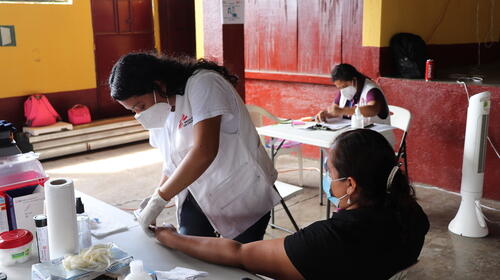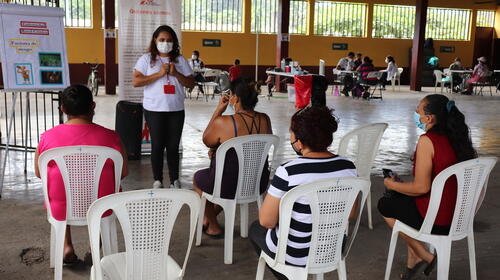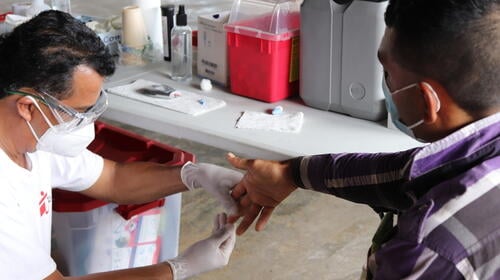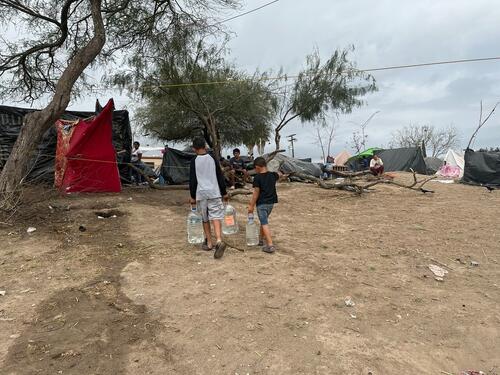Chronic kidney disease (CKD) is one of the main public health problems in Guatemala and is responsible for rising numbers of deaths. The disease – in which the kidneys do not work as well as they should, causing them to fail completely in extreme cases – is aggravated by other medical conditions such as hypertension and diabetes. In 2023, 12 new cases of renal failure were registered in Guatemala every day.
Patients in the advanced stages of CKD, whose kidneys are no longer functioning, require dialysis to filter unwanted substances and fluids from their blood. This can take the form of either hemodialysis (which uses an external machine to filter the blood, and generally takes place in dialysis centres) or peritoneal dialysis (which uses the lining of the abdomen as a filter and can be carried out at home).

In the three years since we opened the project in 2021, considerable progress has been made in tackling the disease and our project has impacted the lives of hundreds of people with CKD. One of the main achievements of the project proved that with the right tools it is possible to provide quality medical care to the affected people. Even with the limitations and resources of the country, it is possible to provide comprehensive care with the follow up of the health authorities.
We have now taken the difficult decision to close our project, due to financial constraints and so that we can focus on other humanitarian activities in Guatemala. However, we stress the need for health authorities to run renal health programmes across Guatemala and to ensure that the activities set up in the three municipalities of Escuintla department can continue to benefit people’s lives and bring down mortality rates from the disease.
“During the course of our activities, we have seen how this disease impacts the quality of life of patients and their families,” says Dr Miriam de León, MSF project coordinator. “This ranges from having to quit their jobs to get the treatment they need, to changes in eating habits and changes in everyday routines that also affect people close to them.”
During the course of our activities, we have seen how this disease impacts the quality of life of patients and their families.Dr Miriam de León, MSF project coordinator
Over the past three years, we have focused on improving people’s access to treatment programmes and reducing deaths from CKD through a comprehensive healthcare model that includes testing for the disease, laboratory analysis, training health staff in recognising and managing the symptoms of CKD and making improvements to local health centers so that they have the facilities to care for patients. Fundamental to the project has been involving local communities and working alongside health authorities to raise awareness of the disease through running workshops and training local health workers.
Fidel Ruíz, a diabetic patient with CKD cared for by MSF, describes the diseases’ impact on his life. “My daily activities have been affected since I was diagnosed with diabetes and my leg was amputated three years ago,” he says. “It is very difficult to get any job opportunities and getting around is also difficult. If I want to get a bus to travel to Guatemala City, the drivers don't want to stop because they can see you are sick.”

Many patients cannot afford to travel to the main dialysis centres in Guatemala City, so our teams have helped them with the cost of transport, food, lodging and additional medical tests. From 2021 to 2023, MSF screened 5,353 people between the ages of 13 and 60 for CKD, of whom 1,029 had suspected CKD, three months after their initial test, 401 patients had a confirmed CKD diagnosis and 687 had comorbidities such as diabetes and hypertension.
“Health authorities must provide adequate services for CKD patients and facilitate timely access to medical care for diagnosis and treatment of the disease,” says Dr De León. “It won’t be an easy task, as addressing CKD in a comprehensive and sustainable manner will involve allocating resources from elsewhere and collaborating with other organisations, but it will make immeasurable improvements to people’s lives countrywide.”






